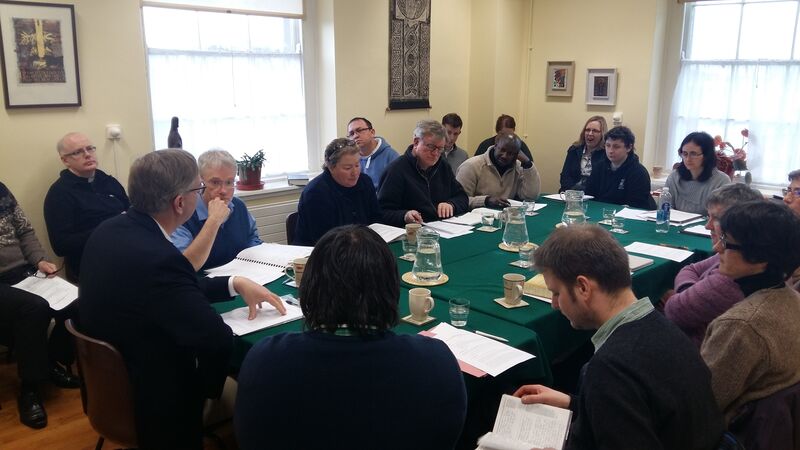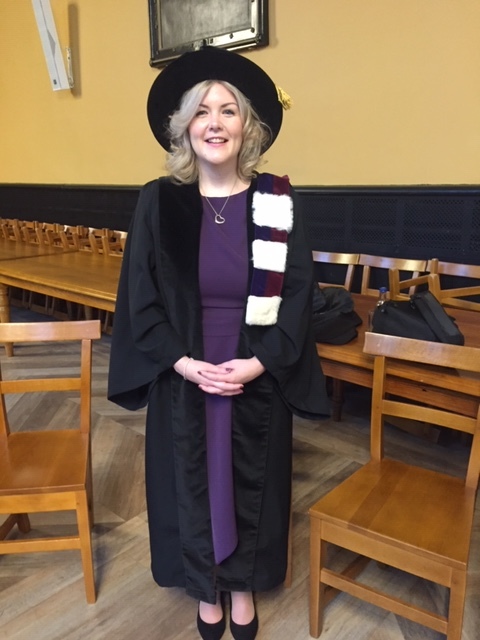Anne Lanigan
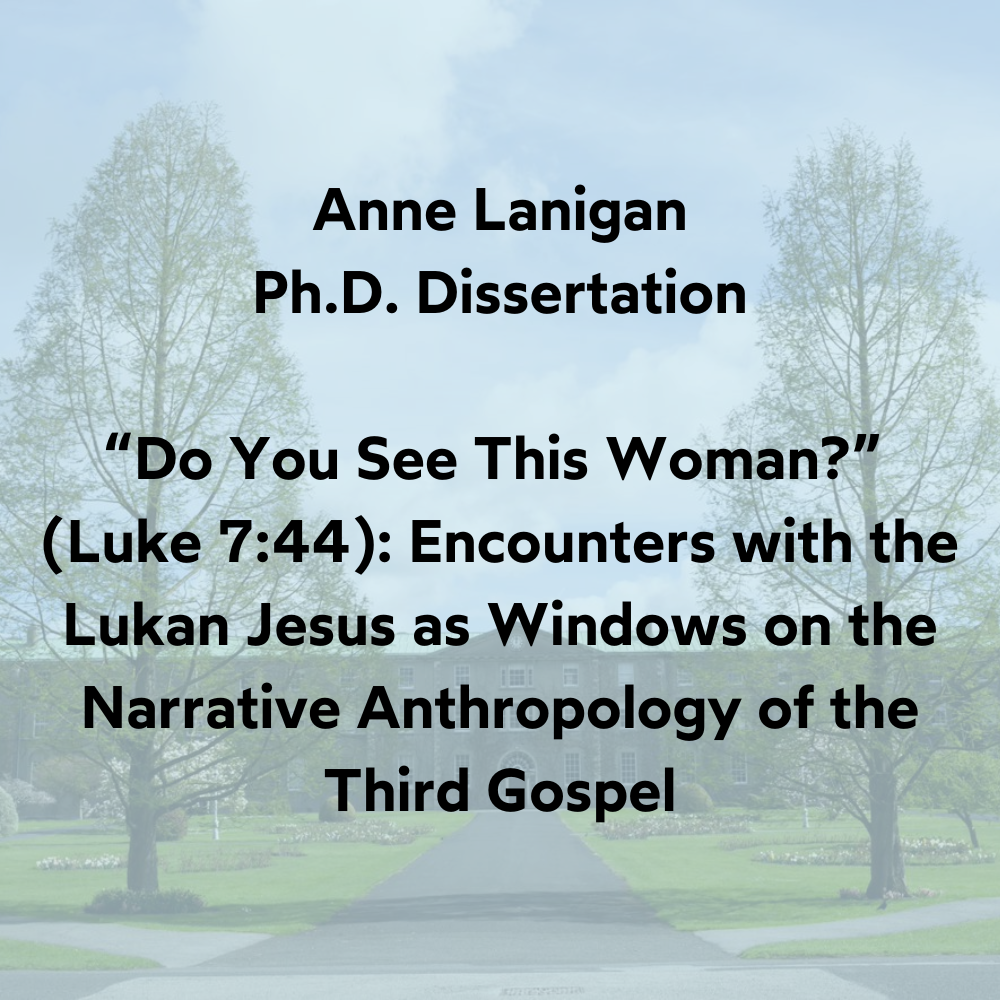
Dissertation title: “Do You See This Woman?” (Luke 7:44): Encounters with the Lukan Jesus as Windows on the Narrative Anthropology of the Third Gospel.
My dissertation set out to explore aspects of the anthropology of Luke’s Gospel, asking the question, What is evangelist’s view of the person and how does he narrate it? In other words, the study considers some of the diverse ways in which the Lukan author depicts the human characters in the Gospel’s narrative, their relationship to one another, and to the Lord Jesus, with whom they interact in the narrative world. Because the Gospel is a narrative text, the study adopted a narrative-critical approach, undertaking a close reading of four pericopae—the Anointing Woman and Simon the Pharisee (7:36–50), Martha and Mary (10:38–42), Zacchaeus and the “Grumblers” (19:1–10), and the Two Wrongdoers (23:32, 39–43)—each chosen as characteristic of the Lukan Jesus’ interaction with people.
Six major assertions about the vision of the human being that animates Luke’s Gospel emerge from the investigation. First, Luke presents humans as decision-makers who must come to an imminent resolution of who Jesus is. As such, they possess a certain freedom and responsibility, and are capable of personal transformation. Second, human beings, as characterized by Luke, are complex, enigmatic, and often surprising. This applies both to the idealized characters who respond positively to Jesus and to their more realistic counterparts whose ultimate response is unnarrated. Third, “Luke’s people,” both characters and readers, live in existential uncertainty and insecurity. This is reflected in the unfinished stories of the non-idealized characters who forever remain on a boundary, without the reader knowing what decision they ultimately take. Fourth, Lukan anthropology is radically this-world oriented, and “today” is the primary locus where salvation—or life as God intends it—occurs. Fifth, Zacchaeus may be considered a paradigmatic human being whose “lostness” is a metaphor for the general human condition that awaits being “found” or transformed by Jesus. Sixth, the “found” human being evinces a receptivity to being found, and so enters into the fullness of life that “salvation” brings.
Sr. Agnes Agbom
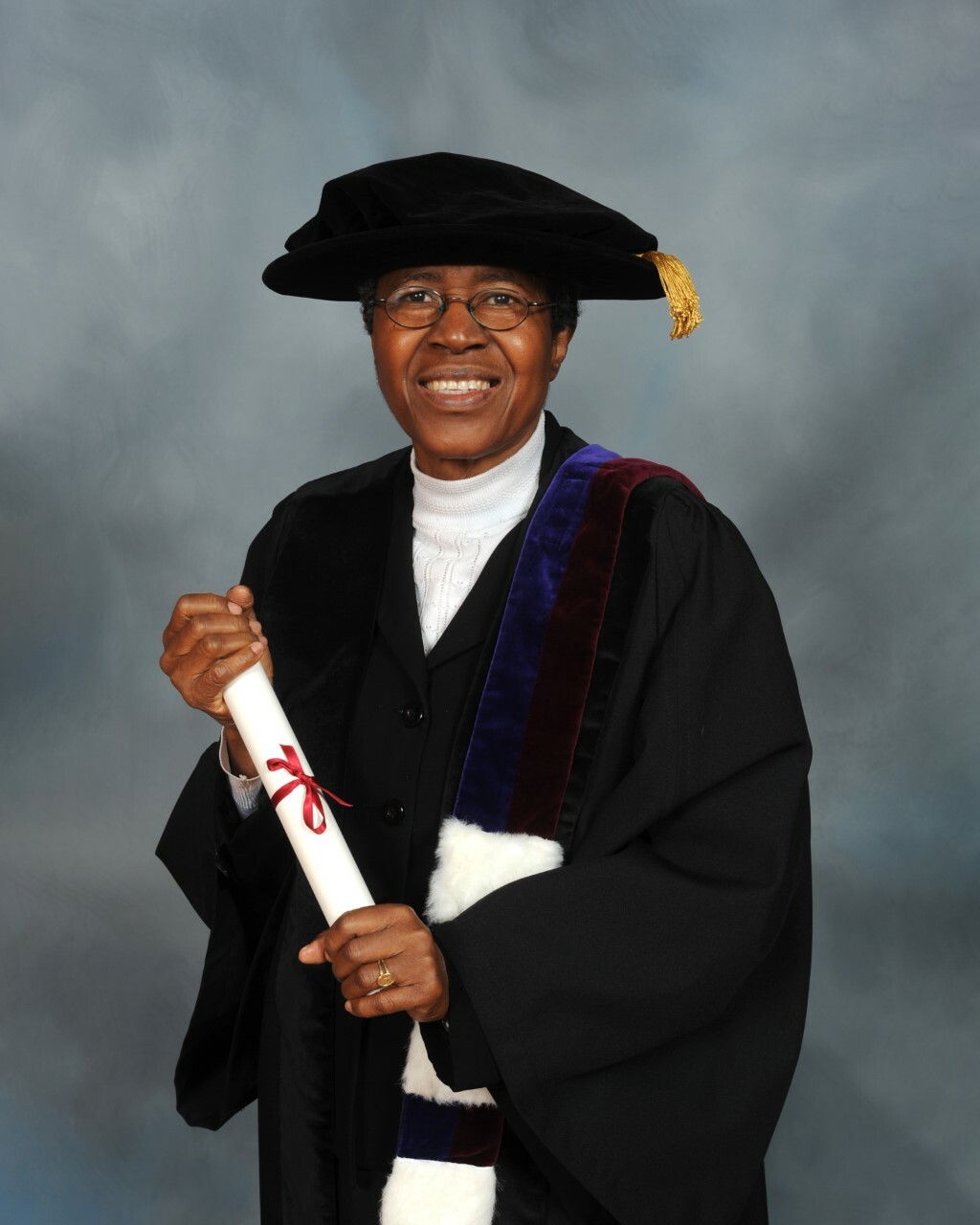
Thesis Title: Communion in Ezza Culture: A Theological Analysis from the Trinitarian Perspective of the Cappadocian Fathers.
The doctrine of the Trinity has long been taught and received as a mystery not totally knowable to human beings. Unfortunately, this central doctrine of Christianity has to a great extent been interpreted and confined to the intellectual sphere without any connection to people’s lived experiences. This study departs from this tradition; instead, it uses the relational interpretation of the Trinity by the Cappadocian fathers to study communal relationships in contemporary Ezza culture in Igbo in Eastern Nigeria. The thesis argues that the Trinity is not merely a mystery that has no connection to human experience. Rather, it asserts, for example, that communal relationships in Ezza culture are possible because Ezza people, like other human beings, are created in the image and likeness of God who is Trinity. The doctrine of the Trinity captures the fact that human beings are created in the image and likeness of God especially because of the incarnation of the second person of the Trinity, Our Lord Jesus Christ. Thus, there is a continuity and development of the God/human relationship made possible by Jesus Christ who reveals God as Father, Son and Holy Spirit. The ministry of Jesus essentially calls all humanity to participate in the fullness of trinitarian communion. On the basis of all these factors, this study argues that the communion in Ezza culture, although imperfect, resembles trinitarian communion. It proposes that teaching and interpreting the doctrine of the Trinity in terms of loving relationship and communion has the potential to deepen the gospel message in Ezza. This is especially the case because when love, the central message of the Christian faith, encounters a culture that practices communal living, people may begin to embrace the positive teaching of the Christian message in their communal lives. In this environment of enhanced genuine Christian commitment, the Christian injunction of love of God and neighbour may take root and flourish.
Nicole O'Riordan
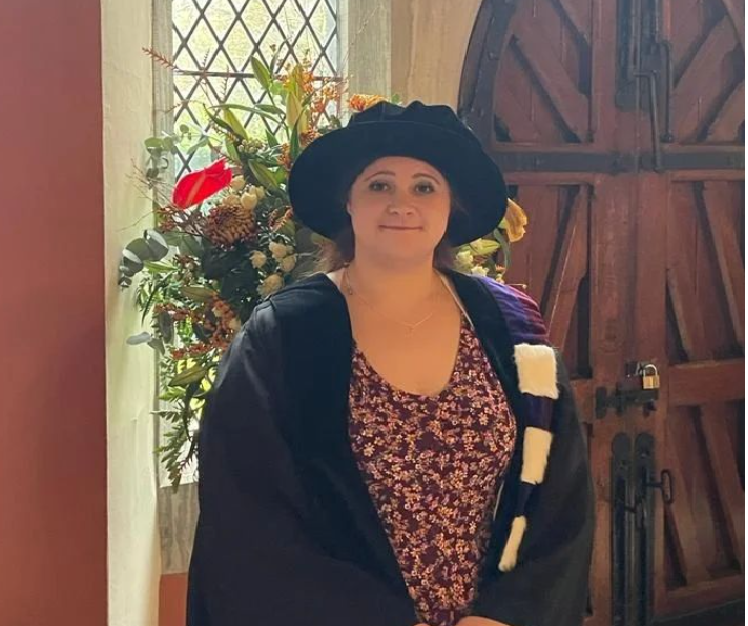
Summary of Nicole O’Riordan for PhD in Theology
Thesis Title: Carnival Clown, Royal Rejuvenator, and Cosmic Terror: The Characterisation of Saul, David, and God through the Bakhtinian Lens of the Carnival in Select Chapters of 1 and 2 Samuel.
This thesis utilises the concept of the carnivalesque, as devised by Russian literary theorist Mikhail Bakhtin, alongside select chapters of 1 and 2 Samuel. The overarching and fundamental question of this thesis is: can certain aspects of the Samuel narrative be considered carnivalesque, or darkly comedic in tone? The conclusion of this thesis is: yes. This thesis moves aside from while still engaging with the predominantly tragic “take” that has formed the nucleus of preceding research on the Samuel narrative at large and the character of Saul. The characters of Saul and David, as Israel’s first kings, are two sides of the same coin; two clown-kings at “play” in the narrative in order to ridicule and reveal (respectively) something significant about the nature of leadership, specifically kingship as it has been introduced as a form of leadership into Israel. God is posited as the cosmic terror (as Bakhtin terms it) of the Books of Samuel; the personification of the immeasurably huge and unconquerable ‘other’ that inspires dread in humans when encountered. Within the carnivalesque landscape of 1 and 2 Samuel, God (as the cosmic terror) is a distant Deity to his community and utilises the figures of the clown-kings in order to re-orientate the community, and his relationship to it. Through this methodology of the carnivalesque, an alternate view of the characters of Saul, David, and God is given. This style of investigation moves away from the more tragic appraisal of the story of Saul, and recognises the more darkly humorous aspects of the narrative.
Sarah Gorman

I undertook my undergraduate studies at the Pontifical University, St. Patrick’s College, Maynooth. Having completed the Baccalaureate in Theology and Arts, I opted to continue at postgraduate level. My Master’s research focused on the work of René Girard, drawing out some implications of mimetic theory for theology. I was awarded the Doctoral Degree in Theology, with a dissertation entitled “Believing Anew: Gianni Vattimo and A Form of Faith in Contemporary Culture” in 2020. The dissertation itself explores the question of access or coming to faith in contemporary culture in the light of Gianni Vattimo’s philosophy. His thinking invites a reconsideration of metaphysics, its relationship to Christian faith, and the possibility of faith life in a post-metaphysical age. Given that the Christian tradition is indebted significantly to classical metaphysics, and we now live increasingly in a world that is marked by the dissolution of that same metaphysics, it is incumbent on us to consider again how one might approach faith in a contemporary setting. The dissertation shows that Vattimo’s work opens a pathway for a renewed engagement with the Christian tradition that does not lean on metaphysics.
Dr Colette Maloney
I am Dr. Colette Maloney, originally from Scotland but I have lived in Ireland for over 20 years. I studied English Literature and Theology at St. Patrick’s College, Maynooth. In 2011, through Maynooth Mission Outreach, I travelled to Peru to work at a home for children who are sick and poor, and it really changed my life! So much so that I have returned almost every year since. The children and people of Peru and my experiences out there have always shaped my studies and my writing. My master’s thesis was entitled “Caritas In Veritate and the History of the Social Encyclicals of the Church.” I was awarded my Doctoral Degree in Theology (PhD) at St. Patrick’s College, Maynooth in 2019. Since graduating, I have lectured in Moral Theology at Trinity College, Dublin and I am currently Assistant Professor of Moral Theology and Religious Education at DCU.
Dissertation Title: The Integration of Theology and Spirituality in the Work of Sandra Schneiders, Jon Sobrino and Donal Dorr.
This dissertation was inspired by a statement made by Sandra Schneiders: “Theology is faith seeking understanding; however, it is also understanding seeking transformation.” It is not only moral theology but theology as a whole, marked by a mutual interchange with spirituality, that can aid the transformation of our Christian existence. The best space for Christian discipleship to evolve is where theology and spirituality meet.
Spirituality is found to be the integrating dimension for theology; it is a multi-disciplinary, interdisciplinary unifying field that weaves together a wide array of experiences, narratives, texts and understandings. A spirituality fit for the 21st century, while demanding critical reflection, is one that is unlimited and unhindered in approaching questions about God and our relationship with the transcendent.
The three theologians were so chosen because the nature of their work is grounded in their personal experience of poverty and injustice. This dissertation proposes that it is in listening to and raising the voice of women, of people who are poor and people who are marginalised, that significant healing and transformation of our relationships with each other and with the earth can take place.
After assessing the three theologians’ work, the final chapter of the dissertation explores the exciting possibilities of an integrated approach. Many inspired cycles of revelation and response are waiting to be told; other voices, experiences, stories and views. We may even become so inspired as to give voice to our own stories. When a discipline allows space for the voices of many to be heard, something extraordinary begins to grow. When people recognise themselves in the stories we tell and know that their voice matters and is respected, then the transformation sought by the three theologians begins to blossom.
Dr Joseph Varghese
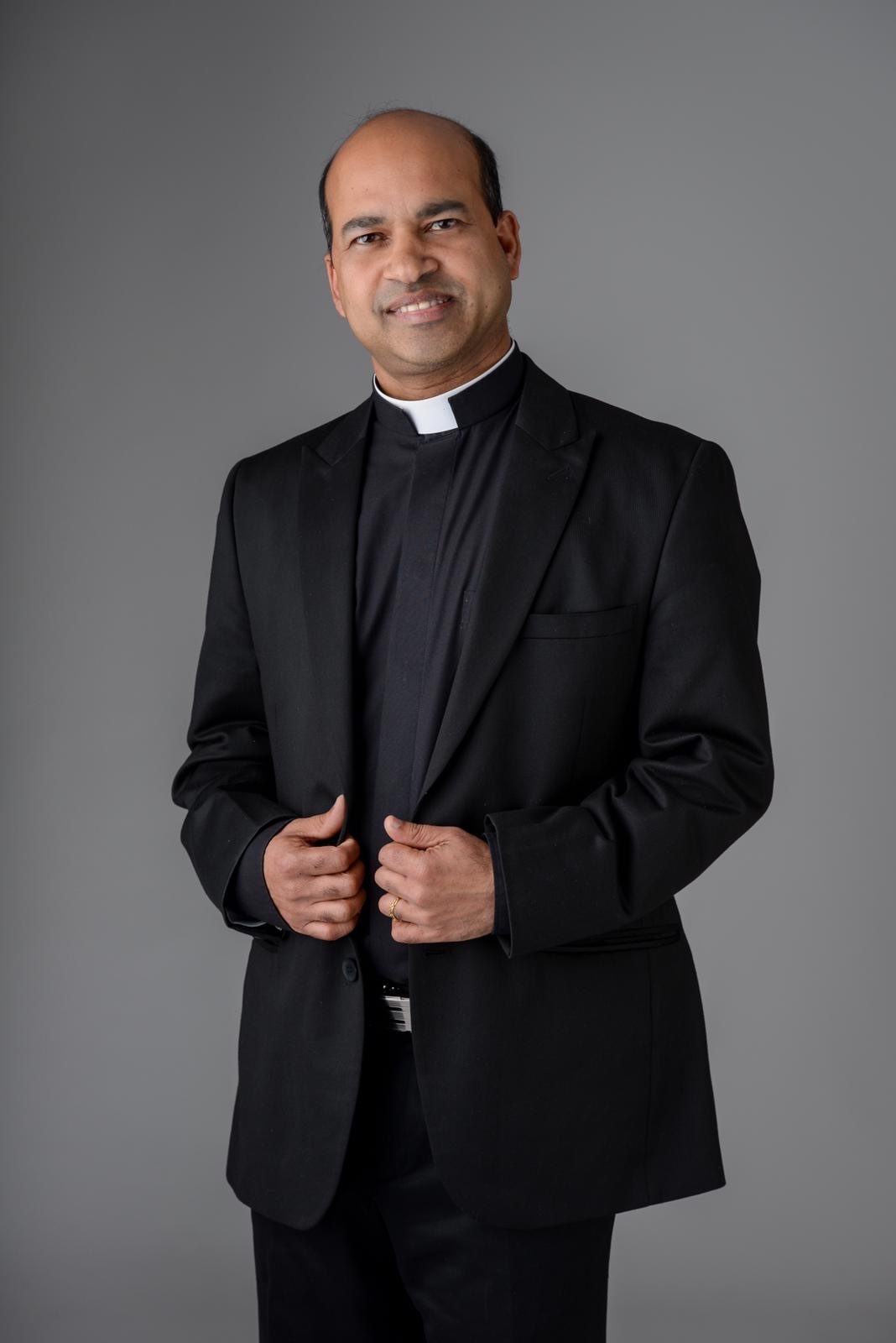
I am Fr Joseph Varghese, a priest belong to the Syro-Malabar Church, originally from the Archdiocese of Changanacherry, Kerala (India), but now based in the diocese of Derry, Northern Ireland. I attended Heythrop College (2007-2009) and gained my master’s degree in Christian Theology. My master’s thesis was: “Grace as manifested in the person of Jesus, in Human Persons and in Human History - A Reading on Karl Rahner.” I was transferred to Northern Ireland in 2010 and having settled there I undertook studies in St Patrick’s College, Maynooth. This year I have been awarded a Doctoral Degree in Theology (PhD).
Thesis title: Hinduism and Christianity: Exploring the Theological Basis for Dialogue between Christianity and Hinduism in India in Accordance with the Mind of Vatican II, with Particular Reference to the Theological Method and Christology of Henri de Lubac
While contact between the two religions is positive and fruitful from a social and political point of view, much work remains to be done at the level of theological encounter. I have been inspired by the theological method of Henri de Lubac, especially the two principles that can be gleaned from his inaugural theological lecture in 1929, viz. the Principle of Auscultation and the Principle of the Catholicity of Truth, the latter being the basis for the former.
The study of Buddhism conducted by de Lubac preceded Nostra Aetate. His approach to that work provides a template for inter-faith studies and dialogue following that declaration. This research enabled me to apply de Lubac’s methodology to an exploration of dialogue between Christianity and Hinduism in India. It proceeds to outline findings from that study which pertain to the challenges for Christology and Soteriology arising from the recognition of other religions as part of God’s universal salvific plan.
Dr Aloysius Lumala
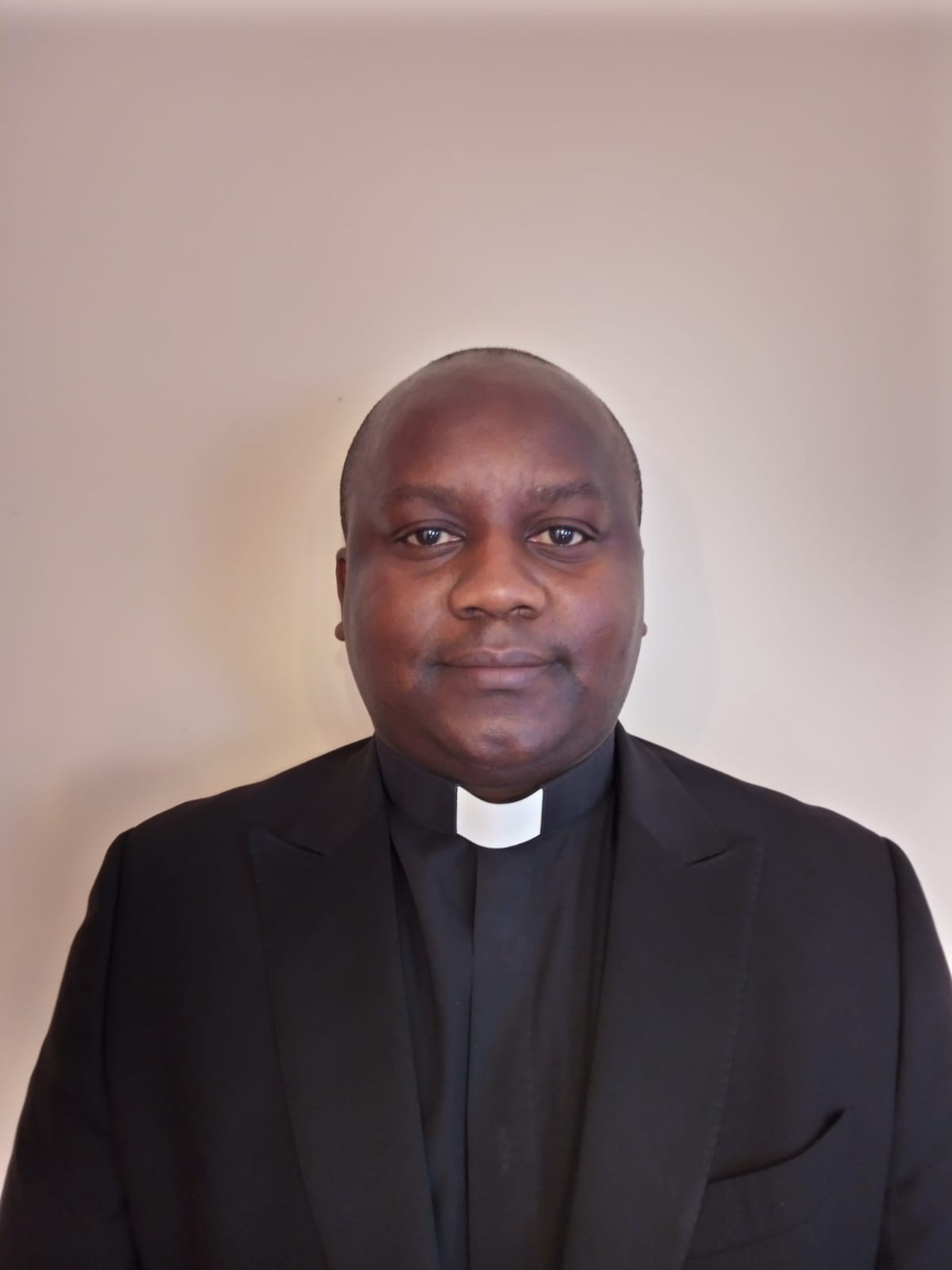
Fr Aloysius Gonzaga Lumala is a priest of the Archdiocese of Kampala, Uganda. He was ordained in 2008 and is currently ministering in the diocese of Down and Connor, Northern Ireland since 2012.
His doctoral thesis was entitled: “The Future of the Sacrament of Penance: An African Reconciliatory Paradigm in the light of Karl Rahner’s Theology of Penance.”
Based on the African concept of humanity or building a strong community life (ubuntu) and Karl Rahner’s theology of reconciliatio cum ecclesia, my study presents the kind of renewal required to revitalise the dwindling practice of sacramental confession. In fact, sin has social consequences and similarly quitting sin or realising reconciliation requires a sociological shift or a community-based approach. Once the whole community realises the value of a unified and reconciled web of interdependent existence, they will appreciate the power and joy of celebrating God’s love and forgiveness through an ecclesiological celebration of the sacrament. So, the rite for reconciliation of several penitents with individual confession and absolution is recommended as the most effective form of celebrating sacramental penance. This rite contributes significantly to the unique dynamism of the concrete expression of the symbolic communal character of the Church as a means of hope, conversion, forgiveness and hospitality.
Dr Angela Costley
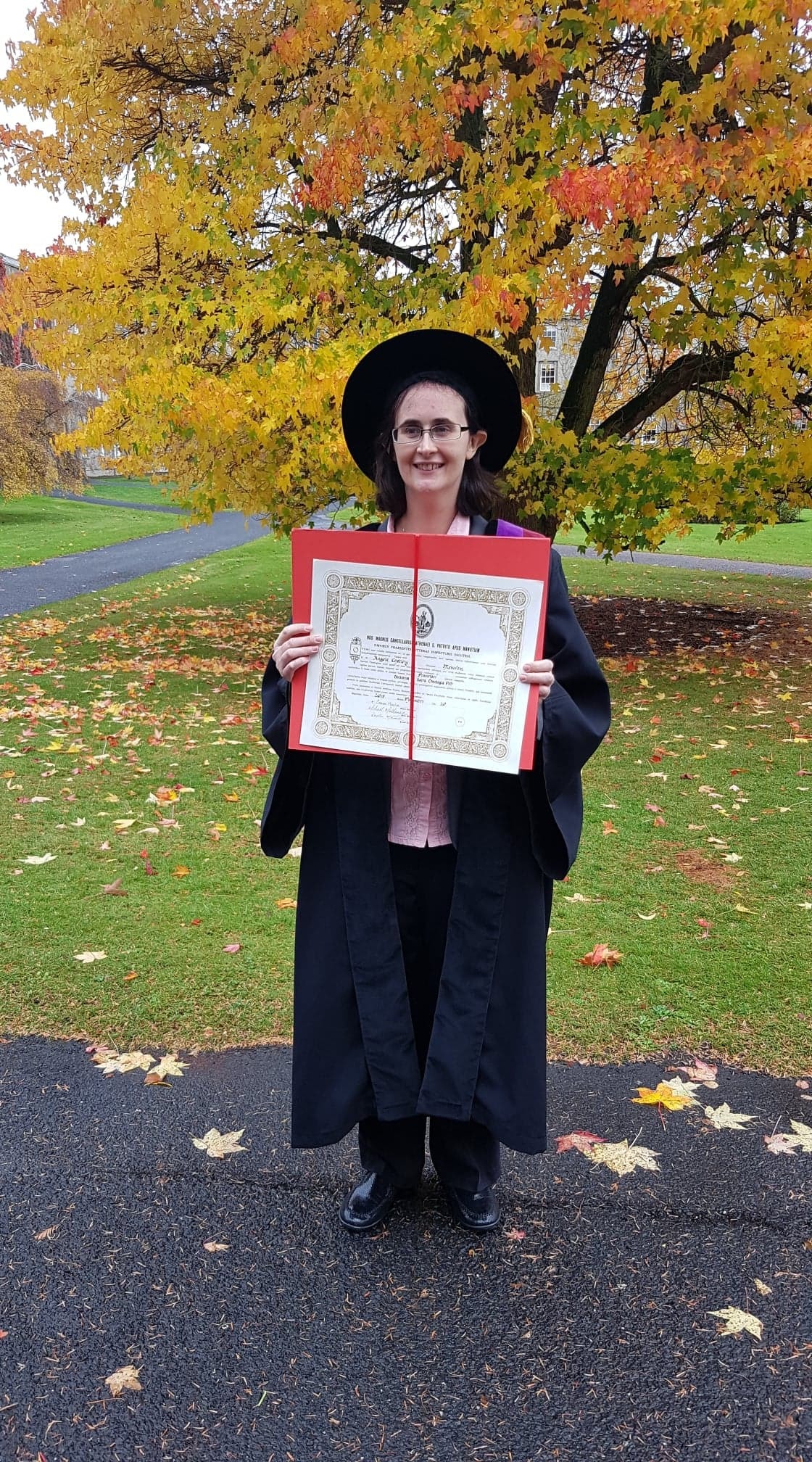
After studying at Durham University (theology and education theory) and Oxford University (Masters in Jewish Studies), Angela Costley came to St. Patrick's College, Maynooth, graduating with a doctorate in 2018. Her thesis, Creation and Christ: An Exploration of the Topic of Creation in the Epistle to the Hebrews has just been published by Mohr Siebeck in the WUNT series. She currently teaches New Testament Greek and Wisdom Literature at St. Mary's College, Oscott, Birmingham, UK.
Angela Costley’s doctoral thesis, Creation and Christ, looks at how the author of Hebrews blends creation theology into his soteriology, to depict Jesus as the creator God who descends to earth to redeem humanity and lead it heavenward. Until now, the focus of studies on the Epistle to the Hebrews has mainly been on its priestly theology of Christ, who enters the sanctuary once and for all for the salvation of humanity. However, the Epistle does not open so much with images of Christ as a priest, but rather with the description of the Son through whom God made the aeons. In fact, the term high priest occurs only four times in the first four chapters of Hebrews, apart from a reference to sacrifice in 1:3. Rather than emphasising the sacrificial activity of Christ, the opening section has a number of references to creation. This has prompted Costley to ask why creation was being referenced so often and in so many different ways. Indeed, Hebrews was not making references only to the Genesis account, but also to several Psalms. The research proceeds by examining Hebrews’ references to creation sequentially, hoping to gather insights into the purpose of the references to creation from the point of view of linearization. In the course of this investigation, Costley grapples with interpretational questions from a discourse analysis perspective, including intertextual analysis, and thus contributes to a scholarly understanding of the discourse of Hebrews by highlighting important connections between the topic of creation and the Son’s salvific activity.
Dr Michel Simo Temgo
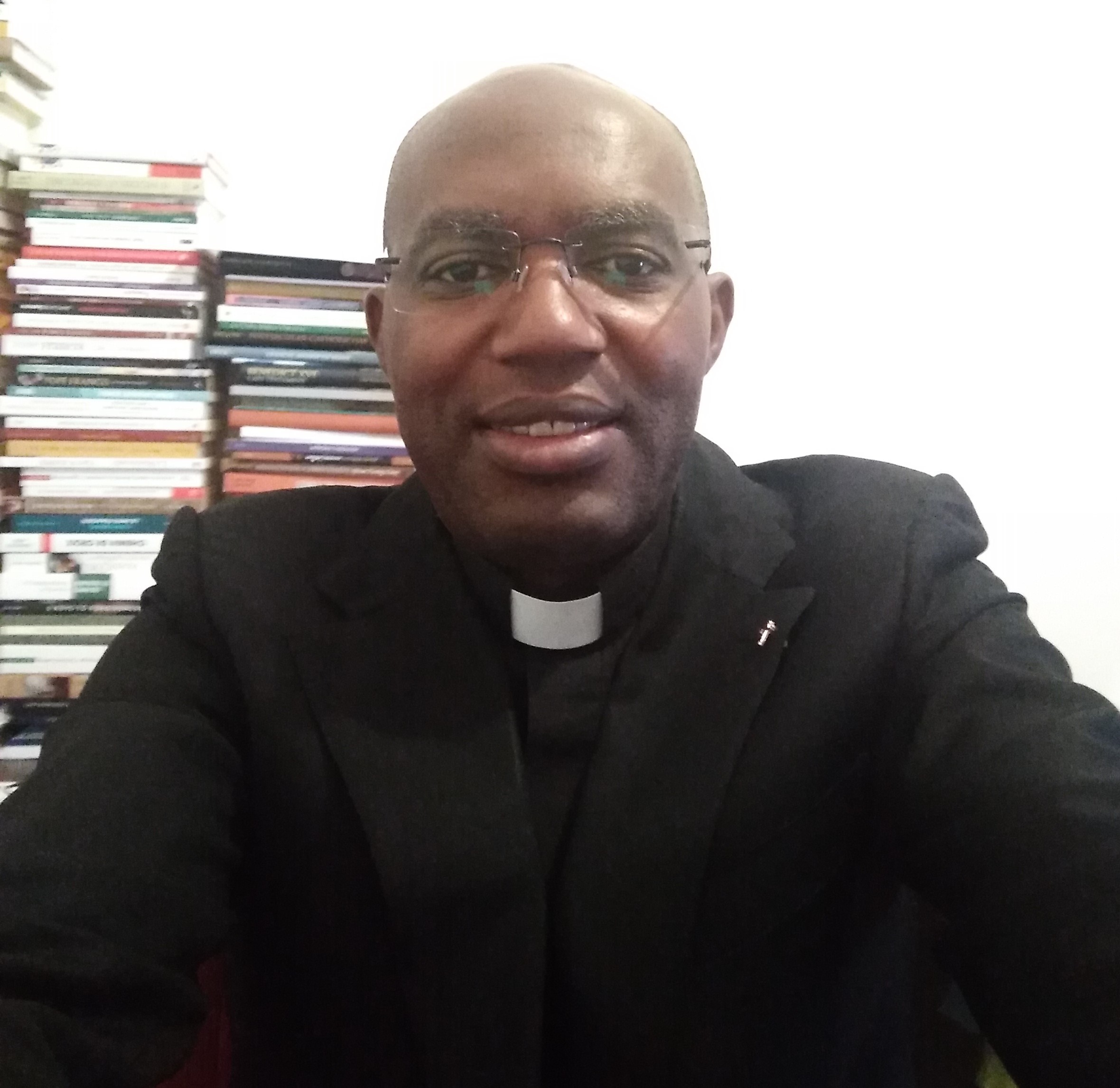
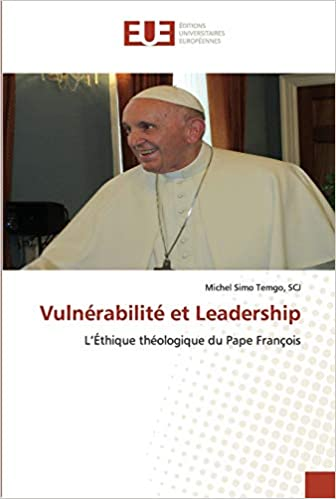
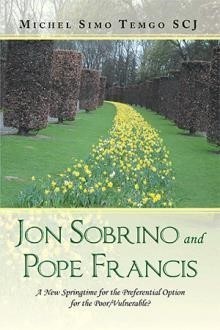
Dissertation Title: “Jon Sobrino and Pope Francis. A New Springtime for the Preferential Option for the Poor?”
The doctoral thesis, now available as a book, focuses on the use of the “preferential option for the poor” in theology today. Hence it turns to two contemporary Jesuits: Jon Sobrino and Pope Francis. Based on their understanding of the phrase, this study opens a debate about the search for an alternative theological expression. It suggests that the “preferential option for the poor” should be replaced by “compassion for the vulnerable.” This thesis is available as a printed book ($24.49) from Xlibris publishers (Bloomington, Indiana), and also as an E-book.
The second part of this thesis, focusing on Pope Francis, has been updated and is now published in French (€71.90) at Éditions Universitaires Européennes, with the title: Vulnérabilité et leadership: L’éthique théologique du Pape François (= Vulnerability and Leadership: The Theological Ethics of Pope Francis). The publisher has plans also to translate it into 8 other European languages.
Dr Joseph Ali
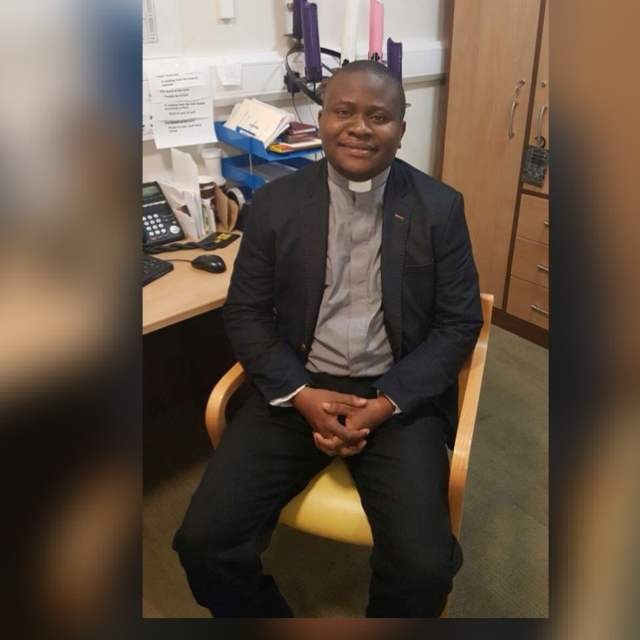
I am Joseph Ayegba Ali, and I hail from Kogi State, Nigeria. I am a priest of the Catholic Diocese of Idah, in Abuja Ecclesiastical Province, and I am resident in the Church of St Vincent de Paul Marino, Dublin 9. My Ph.D. in Theology concerns Catholic Social Teaching on Peace Building:
The Contributions of African Theological Voices including Cornelius Afebu Omonokua, Aquiline Tarimo and Desmond Tutu to a Renewed Theology of Peace Building.
I chose this topic because of the urgent need for peace and in the light of the African theologians’ unique contributions to our society. This thesis seeks answers to the following questions: What does peacebuilding mean in a pluralist society that is characterised by ethnic and religious violence? What roles, functions or goals do these scholars assign to this study? What is their understanding of it? How do they relate the need for peace to the wider society and the church? In the inevitable event of such conflicts occurring, what solutions do these scholars proffer in order that they are resolved? How do these scholars relate the call to peace to the concrete living of her people? How do African voices make a distinctive contribution to peace in conversation with other scholars?
This study was prompted in Africa’s most populated nation, Nigeria. Ethnic and religious violence are everyday feature that have created many soured relationships. The situation can serve as a lens through which one can further the study of the problems of democratization and peace-building in divided societies. The active collaboration of all peoples who share a similar vision for peace and harmony in a pluralistic society like Nigeria is the only way to peaceful co-existence.
Fr Alex Wanyama

Alex is a Kenyan Catholic Priest belonging to the order of Salesians of Don Bosco. He holds two master’s degree in philosophy: Master of Arts in Philosophy (Catholic University of Eastern Africa, Nairobi), and Master’s in Research Philosophy from Heythrop College, University of London.
His doctoral research is centred on the Philosophy of Friedrich Nietzsche and African Ethno-Philosophy. Alex’s doctoral thesis: “Nietzsche on Individual Autopoiesis: Critical Dialogue with Ethno-philosophy of Shienyu Ni Shienyu and Cosmopoeisis.”
In this thesis, he endeavours to show that: For Nietzsche, the task of individual Autopoiesis must be conceived and examined within the tragic nature of existence. The qualitative response to the tragic nature of existence amounts to an affirmation of life via cultivating singular individuality. However, given that some Ethno-philosophies privilege communal existence, the thesis seeks to confront the question: If existence is tragic within Nietzsche’s scope, then is a communal response tenable enough? Does the aporia of existence fundamentally demand an individual or communal response? Ultimately, affirmation of existence as tragic, determines the quality of institutions that evolve.
Fr Felix Okolo

I am Fr. Felix Okolo from Nigeria and a member of the Anglo-Irish Province of the Order of Discalced Carmelites. After obtaining a Master’s degree from the Pontifical University Maynooth in 2014, I began my doctoral research there.
My research topic has been on “The Centrality of the Eucharist in the Experience of Christ of Saint Teresa of Jesus (1515-1582).” It is about Teresa’s Christological experience and the central place of the Eucharist in this experience. Teresa’s experience of Christ has two aspects: the ascetical (in prayer) and the mystical (in mystical experiences). My research goal has been to show how the Eucharist powerfully informs Teresa’s experience of Christ in prayer and in her mystical experiences of him through locutions and visions.
Beginning with her experience of Christ in prayer, I argued that the Eucharist is at the core of Teresa’s experience of Christ in prayer. The period after the reception of the Eucharist was Teresa’s intense moment of encounter and communion with Christ who has entered into her soul. Teresa’s encounter with the risen Christ in the Eucharist deeply shaped her view of prayer. She viewed prayer as an intimate sharing between friends and as taking time frequently to be alone with him who we know loves us. This intimate communion with Christ finds its highest expression in the Eucharist, where she encountered Christ in his sacramental presence.
In addition to showing how the Eucharist informs Teresa’s experience of Christ in ascetical prayer, I also argued for the centrality of the Eucharist in her experience of Christ through the mystical phenomena of locutions and visions. Most of Teresa’s mystical experiences of Christ took place after receiving the Eucharist. Like the apostles, Teresa came to fully understand the mystery of Christ only after her encounters with the risen Christ in the Eucharist. Her mystical experiences of Christ in the context of the Eucharist gave her an experiential knowledge of what she knew and believed in already, from what her faith teaches her; namely that in the Eucharist, Christ is present in his risen and glorified body. Thus, in the Eucharist she saw and felt the reality she had confessed with fervour in the full darkness of faith.
Fr Paul Kangkai
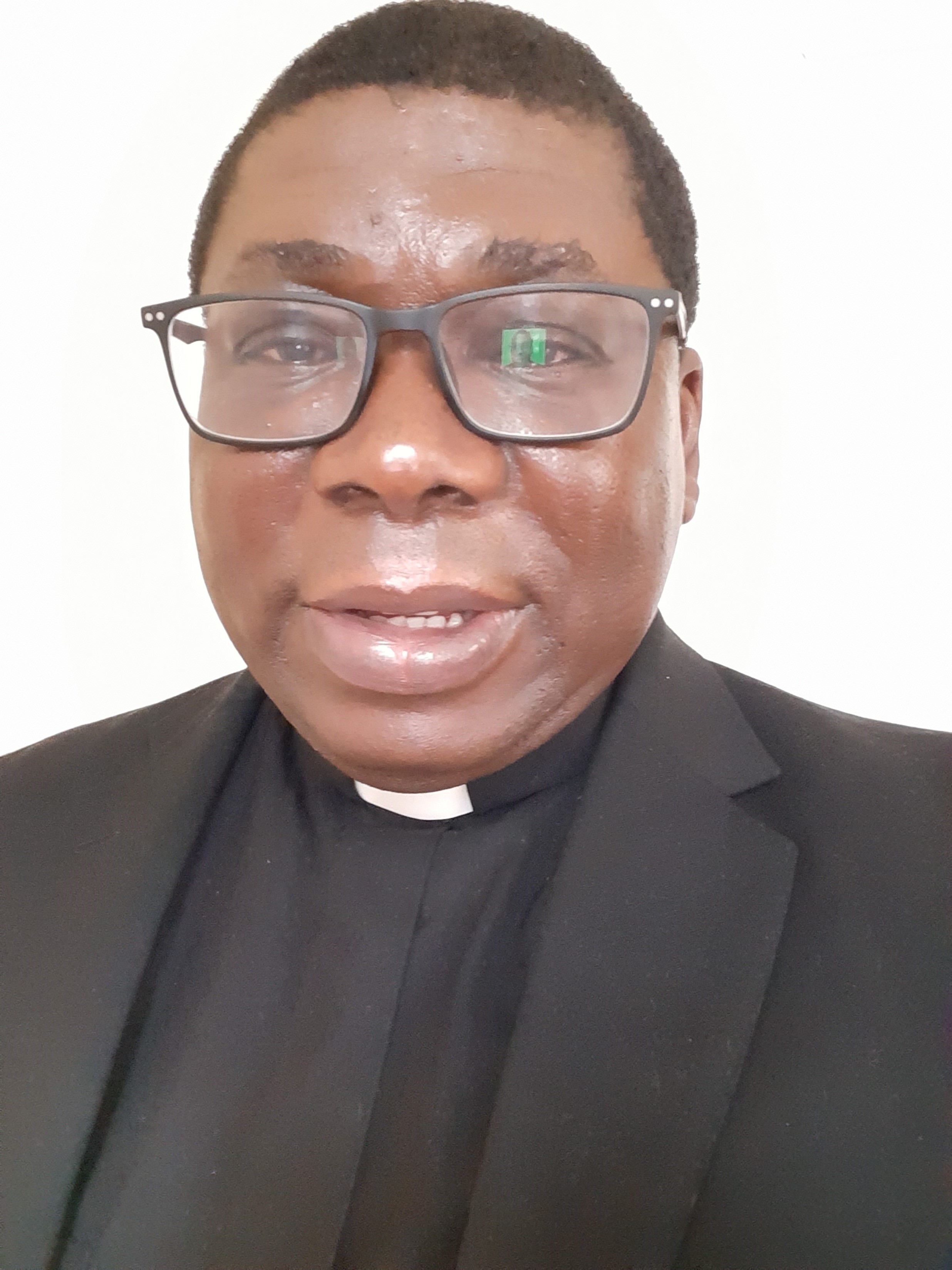
Fr Paul Kangkai was born 31st August 1971. He is a priest of Jalingo diocese, Taraba state, Nigeria. His doctoral research at St Patrick’s College Maynooth has investigated religious pluralism in the theology of the French Jesuit, Henri de Lubac.
Topic: A Contextual Application of the Unicity and Universality of Christ in the Context of Religious Pluralism: A Lubacian Hermeneutic
This dissertation on “An Application of the Unicity and Universality of Christ in the Context of Religious Pluralism” argues like Henri de Lubac that there is no salvation apart from Christ but, at the same time, no one is necessarily excluded from this salvation. To arrive at this thesis statement, the dissertation addresses four key areas. It raises two theological questions. Why and how is Christ unique and necessary for salvation for those who adhere to him, and at the same time how is he of universal significance for humanity? The study addresses one important problematic: while non-Christians can be saved by the grace of Christ through the Church, as de Lubac makes clear, there is a range of views on how this takes place. It addresses the question of religious pluralism in Northern Nigeria, how despite millions of adherents (Christianity, Islam, African Traditional Religion), it has not translated into conciliatory inter-religious relations between Christians and people of other faiths. This thesis retrieves and reaps from the fruits of Henri de Lubac’s two theological principles of Fundamental Theology, “the Principle of Auscultation” and “the Catholicity of Truth”, showing how his understanding of the common destiny of humanity can be a key theological approach in relating with people of other faith in Nigeria. This research makes a significant contribution in the study of Christology, Trinity, Salvation and Inter-Religious dialogue.
Fr timothy Mejida
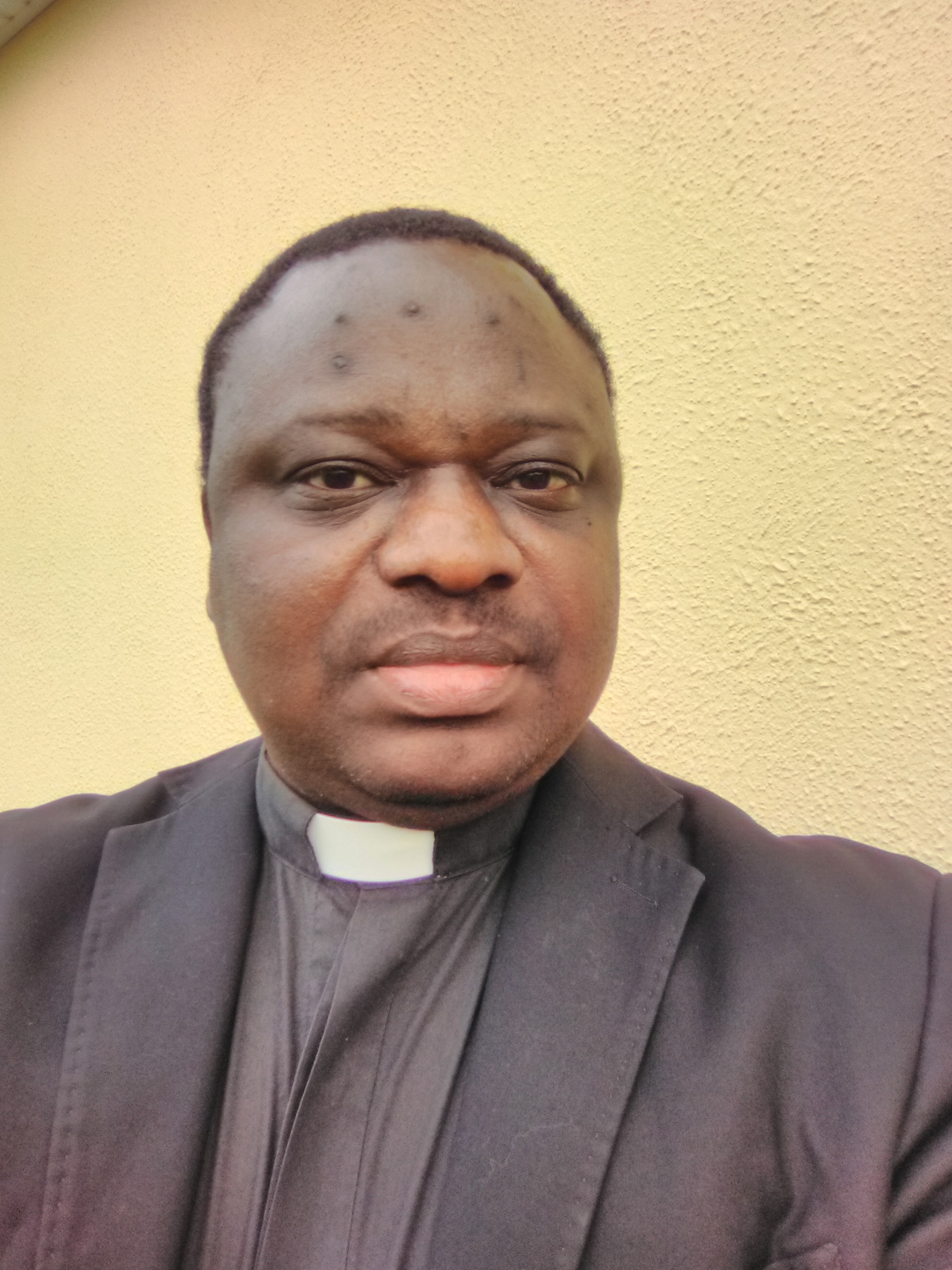
I am Timothy Mejida from Idah diocese in Nigeria and presently assisting in the diocese of Meath. I gained admission in 2014 to study in Maynooth for the MTh and PhD in Biblical Theology, and it has been a fascinating and edifying experience for me. My doctoral dissertation explores the Gethsemane story in Matthew’s Gospel as illustrating Jesus’ obedience to the Father:
The Nature of Jesus’ Obedience: A Narrative-Critical Reading of Matthew’s Gethsemane (26:36-46)
This study investigates Matthew’s portrayal of the textual Jesus’ obedience, because the various conflicting notions of obedience in the Gospel may bring into question Jesus’ genuineness. Using narrative criticism, Matthew’s Gethsemane text is analysed with an eye for Jesus’ obedient character. This shows him to be submissive to God’s will. Intratextual links between Gethsemane and the rest of the Gospel reveal that Gethsemane epitomises the whole Gospel and, therefore, is representative of Matthean obedience theology. Intertextual associations with the Old Testament further demonstrate that Jesus’ obedience perfectly fulfils all the law and prophets and is universally representative.
However, evaluated according to Herbert McCabe’s definition of obedience, the purely Gethsemane ‘submission’ is deficient and would only be scored as perfect ultimately because it results from the fusion of minds between God and Jesus. Accordingly, Jesus’ obedience is the model which every disciple is called to appropriate.
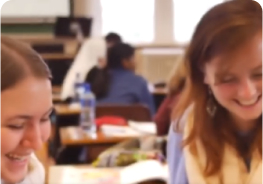
If you live outside Ireland, check out our dedicated area for international students.
Let’s talk
For Undergraduate queries: email admissions@spcm.ie.
For Postgraduate queries: email pgadmissions@spcm.ie.
For The Centre for Mission & Ministries queries, email: cmmadmissions@spcm.ie.

